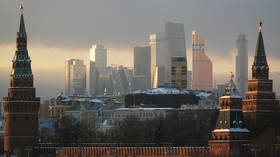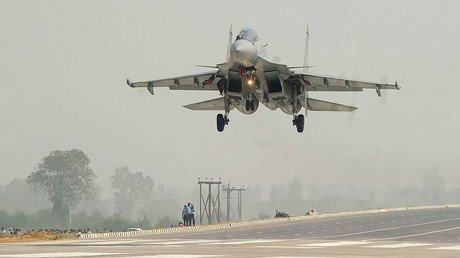Venezuelan PDVSA moves HQ to Moscow to 'safeguard oil assets against seizure'

Venezuela’s state-run energy giant PDVSA will relocate its European office to the Russian capital because of high risks of potential confiscation of oil revenues amid US sanctions against the country’s energy sector.
“Venezuela is worried about further sanctions and asset seizures of PDVSA,” Mehmet Ogutcu, chair of the Bosphorus Energy Club, told RT. “Hence the decision to relocate its European headquarters to Russia so that the assets could not be risked.”
According to the expert, the Venezuelan government is struggling to find new buyers for heavy crude, which had been previously sold to US refineries. The US purchased around 500,000 barrels oil per day from Venezuela before Washington introduced economic penalties against PDVSA, freezing $7 billion of the company’s assets.
Ogutcu stressed that under the current circumstances, revenues from oil sales could easily be confiscated by the US.
As part of the recent sanctions, the White House blocked payments to PDVSA accounts with buyers of Venezuela’s oil directed to deposit all transactions in a separate account, to which the company doesn’t have access. Moreover, Washington completely supports Venezuelan opposition leader Juan Guaido who earlier declared himself interim president.
Russian energy corporations might easily purchase Venezuelan crude, aiming to further re-sell the shipments.
“Russia has already extended loans to Venezuela and has been receiving crude oil to compensate the debt repayment,” Ogutcu said.
At the same time, Moscow and Caracas could establish barter cooperation with Russia providing humanitarian goods to Venezuela in exchange for crude, according to Anton Pokatovich, chief analyst at investment bank BKS Premier.
“Russia could develop the same mechanism the European Union is trying to currently deploy not to halt trading with Iranian crude sector,” the analyst told RT.
For more stories on economy & finance visit RT's business section
















